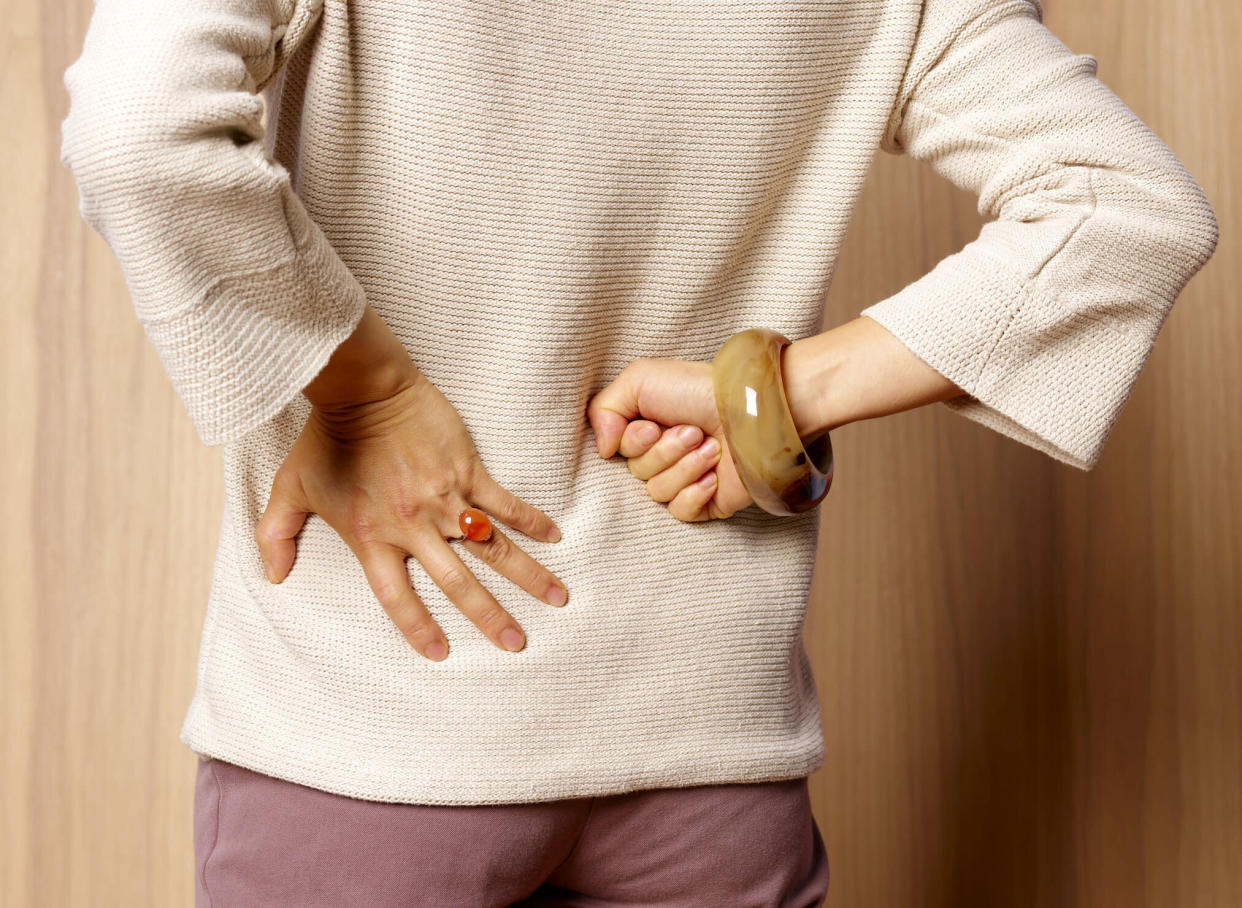The preventative screening test you may need, but have probably never thought about

Preventative screenings — from mammograms to colonoscopies — are crucial for detecting a lot of health issues early. And, while certain diseases like colon and breast cancer get more attention when it comes to preventative screening, early detection is also important for osteoporosis — but many people just aren’t aware of it.
Osteoporosis is a disease that happens when the body loses too much bone, makes too little bone, or both, according to the National Osteoporosis Foundation. When someone has osteoporosis, their bones become weak and can break from a fall or, in severe cases, even from sneezing.
Osteoporosis is serious, and it’s important to try to detect it early, Ayesha F. Cheema, MD, a primary care physician who specializes in geriatrics with Mercy Personal Physicians in Baltimore, tells Yahoo Lifestyle. When that happens, doctors can intervene to try to stop or lessen the progression of the disease with medication and lifestyle changes.
The disease is detected with a bone mineral density (BMD) test. This test can find osteoporosis, note your risk for fractures, and measure your response to osteoporosis treatment, according to the National Institutes of Health (NIH). There are different types of BMDs, but the most common is called a central dual-energy X-ray absorptiometry, or central DXA test, which is a painless test that’s similar to getting an X-ray.
When do I need to get a bone density test?
In general, it’s recommended that women 65 and older get tested (there currently aren’t age-based testing recommendations for men). But there are some caveats. Younger women who have a fracture risk that’s similar to women who are 65 and up should also get tested, the NIH says.
There are a few risk factors that put you in this group:
You have a low body weight
People who fall into this category “tend to have a lower diameter of bone and mechanically are at increased risk for fracture,” Laura Ryan, MD, an endocrinologist at the Ohio State University Wexner Medical Center, tells Yahoo Lifestyle. People with a low body weight also tend to have less fat, and research has shown that they’re more likely to develop a hip fracture if they fall, Ryan notes. “It has a lot to do with padding,” she adds.
Your parents had osteoporosis or a hip fracture
Osteoporosis can be a genetic disease, and doctors want to do what they can to find people who are at an increased risk of developing it due to their genetic makeup, Scott Kaiser, MD, a family physician and geriatrician at Providence Saint John’s Health Center in Santa Monica, Calif., tells Yahoo Lifestyle. “We’re just trying to detect it early so we can intervene,” he says.
You’re a smoker
Smoking is bad for your health on so many levels, and it doesn’t do your bone health any favors either, Kaiser says. “Being a smoker absolutely reduces bone mass,” he says. “Smokers tend to lose bone mass every year.” That’s true even if you have a few cigarettes a day, Ryan notes.
You have rheumatoid arthritis
Rheumatoid arthritis is a chronic inflammatory disorder that affects the joints. “Rheumatoid arthritis is a unique circumstance — it’s just a disease that causes a lot of inflammation,” Ryan says. People with rheumatoid arthritis tend to have activation of cells in the body that leads to bone loss, she says.
You went through early menopause
“In women, the risk of osteoporosis is really only after they have stopped having menstrual cycles,” Ryan says. Going through menopause early means you could be dealing with a lowered bone density for longer than other women.
If you have any of these risk factors, it’s a good idea to talk to your doctor about next steps, Kaiser suggests. They may want to monitor you, have you make lifestyle modifications, or give you a bone density test. However, if you don’t have those risk factors, “waiting until you’re 65 to get tested is fine,” Ryan says.
Read more from Yahoo Lifestyle:
'I have to be really careful': What it's like to be diagnosed with osteoporosis in your 40s
5 healthy habits that lower the odds of developing osteoporosis in the future
Follow us on Instagram, Facebook and Twitter for nonstop inspiration delivered fresh to your feed, every day.

